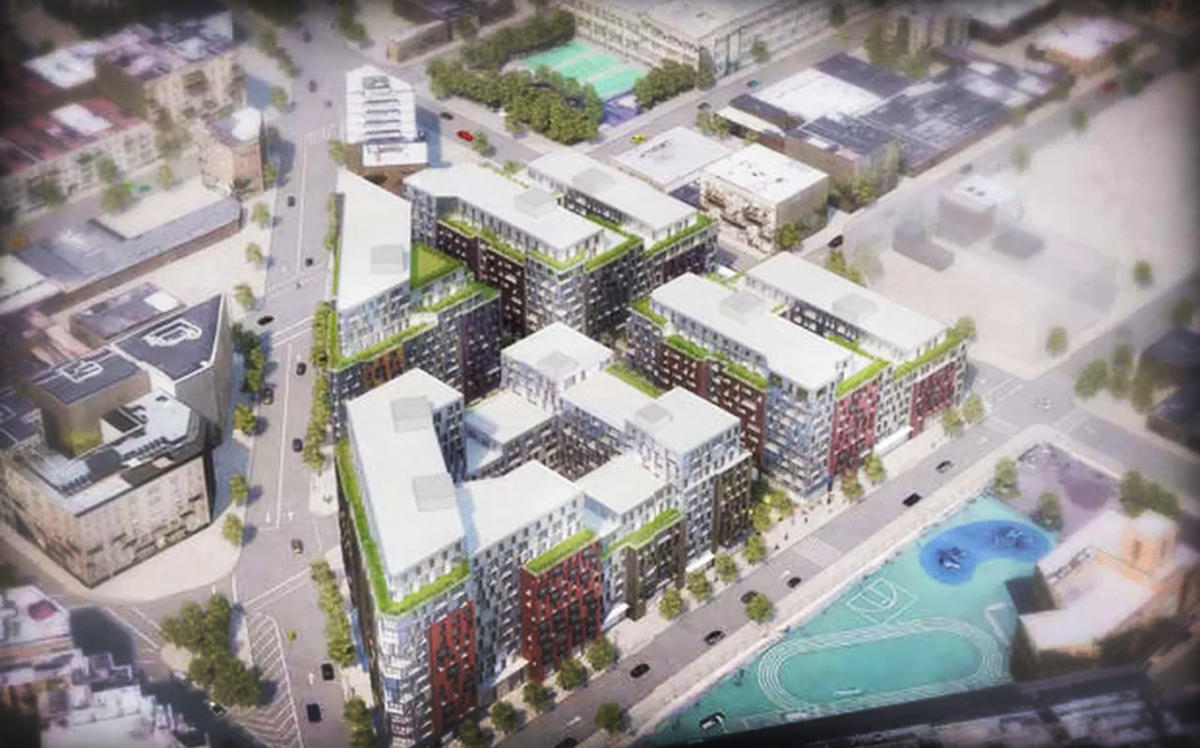Trending
Judge dismisses discrimination suit over Rabsky’s Broadway Triangle development
Lawsuit claimed project would discriminate against people of color

A judge has dismissed the lawsuit against Rabsky Development’s Broadway Triangle project, helping clear the way for the controversial development to proceed.
Churches United for Fair Housing and other groups filed a suit against the city and Rabsky earlier this year, arguing that the project would discriminate against people of color. The plaintiffs asked the court to nullify the rezoning of the former Pfizer site for Rabsky’s project and require the city to conduct racial impact studies whenever it rezones a property.
The eight-building development, bounded by Union and Harrison avenues in South Williamsburg, would consist of 1,146 housing units — 287 of which would be affordable — and 65,000 square feet of retail.
Churches United argued that “wealthy whites” would rent most of the market-rate units, Hasidic tenants would rent most of the affordable units, and rents would rise in the surrounding area, pricing out current minority tenants and preventing new ones from moving in, according to legal documents.
In March, the court put a temporary restraining order on the site, which both sides claimed as a victory. The judge dismissed the lawsuit outright on Friday, which should allow the project to move forward.
“The city needs more housing … a lot more,” Judge Arthur Engoron wrote in his ruling. “The Pfizer Project has already passed political process muster; today it passes judicial process muster. This court finds no legal impediment to it and will not stand in its way one more day.”
Rabsky Group spokesman Tom Corsillo said in a statement that the company was pleased with the ruling and planned to begin construction on the project soon.
Representatives for Churches United and the city did not immediately respond to requests for comment.
Engoron did write in his decision that the plaintiffs’ claims were “well-intentioned, passionately argued” and occasionally produced “a glimmer of plausibility.” However, he ultimately found that the city was not obligated to carry out a racial impact study when it rezones properties and attributed concerns about gentrification and displacement to broader social trends as opposed to conscious decisions by the developers.
“The Pfizer Project will probably extend a predominantly white area (Williamsburg) closer to black (Bedford-Stuyvesant) and Hispanic (Bushwick) areas,” he wrote. “This appears not to be the result of some nefarious midnight plot but, rather, the inexorable, on-the-ground realities of population growth (Hasidic) and income disparity (White compared to People of Color).”




